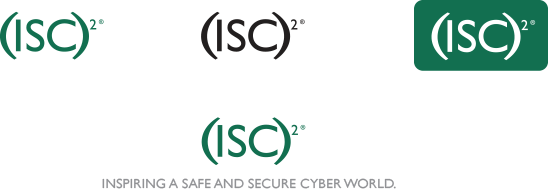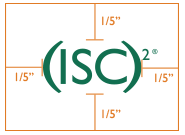- Purpose
This policy establishes the requirements for (ISC)² certified members and Associates of (ISC)² to maintain their certification(s) or associate status.
- Revision History
Version 6.0
- Scope
This policy applies to all (ISC)² certified members and associates.
- Policy
To maintain certification or associate status, (ISC)² certified members and associates must earn a minimum amount of continuing professional education (CPE) credits for each of their three-year or one-year cycles, as well as pay an annual maintenance fee (AMF). Both maintenance requirements must be in compliance to ensure that certification or associate status remains in good standing.
4.1 Continuing Professional Education (CPE) Maintenance Requirement
4.1.1 Certified members are required to earn and submit CPE credits over their three-year certification cycle. All CPE must be earned and completed no later than 90 days after the member’s certification expiration date. For specific CPE requirements, refer to the (ISC)² CPE Handbook.
| Certification | Type | Suggested Annually | Required 3-Year Total |
| CC | Group A |
15 |
45 |
| Group A or B |
-- |
-- |
|
| Total Required |
15 |
45 |
|
| CISSP | Group A |
30 |
90 |
| Group A or B |
10 |
30 |
|
| Total Required |
40 |
120 |
|
| CSSLP, CCSP | Group A | 20 | 60 |
| Group A or B | 10 | 30 | |
| Total Required | 30 | 90 | |
| SSCP, CGRC, HCISPP | Group A | 15 | 45 |
| Group A or B | 5 | 15 | |
| Total Required | 20 | 60 | |
| CISSP Concentrations | Group A | -- | 20* |
| Total Required | 20* | ||
| *For CISSP concentration holders, 20 Group A CPE credits related to each concentration held are required during in the CISSP three-year cycle. CPE required for a concentration automatically counts toward the CISSP CPE requirement. | |||
| Associate Program | Type | Required Annual | 3-year Total |
| Associates of (ISC)² | Group A | 15 | -- |
4.1.2 Associates of (ISC)² are required to earn and submit 15 CPE credits annually. All CPE activities must be completed or earned no later than 90 days after the expiration date of the annual associate cycle. For more information on CPE, please refer to the (ISC)² CPE Handbook (also available in Chinese, Japanese and Korean).
4.1.3 (ISC)² allows certified members and associates a 90-day grace period after the cycle expiration date to earn and submit required CPE activity.
4.1.4 If a certified member or associate fails to submit the required CPE before the 90-day grace period expires, the certified member or associate will be placed in suspended status.
4.2 Annual Maintenance Fee (AMF) Requirement
4.2.1 Certified members (single certified or multi-certified) are required to pay an AMF in the amount of U.S. $125 that is due on the member’s certification cycle start date and subsequent annual anniversaries
Candidates who pass their exams and whose endorsements have been approved for (ISC)² certification must pay their first AMF of $125 before certification is granted.
Associates of (ISC)² are required to pay an AMF in the amount of $50, which is due annually on the anniversary date of the associate’s cycle.
Candidates who pass their exams and are applying for associate designation must pay their first year’s AMF of $50 before their associate designation is granted.
4.2.2 For certified members with multiple certifications on multiple cycle dates, the initial (ISC)² certification anniversary will be the start date for all certifications held and AMF due date. For example, if a member obtained the CISSP certification Sept. 1, 2010, and a CGRC certification on Jan. 13, 2012, the member’s certification anniversary would be Sept.1 each year.
4.2.3 After the 90-day grace period expires and if they have failed to pay the past due AMF, the member’s certification or associate designation will be suspended. This applies for each year of the three-year certification cycle.
4.2.4 Once suspended, individuals may no longer be allowed to use the certificate or associate designation, display the certificate or imply in any way that they are currently certified or an associate.
4.2.5 AMF payments are non-refundable.
4.3 Reinstatement Requirements
4.3.1 To be reinstated once a certification or designation is suspended, (ISC)² certified members and associates are required to submit all outstanding CPE credit and pay current year AMFs.
4.3.2 Suspension status may be maintained for up to two consecutive years. After two years, suspended members and associates will be terminated.
4.3.3 Terminated certified members who seek reinstatement will be required to submit at least 5 CPE credits for each domain of the certification being reinstated, along with 40 CPE credits in their primary domain of practice and a total of 120 CPE credits. CPE activities for terminated member reinstatement must be obtained with a 12-month period.
4.3.4 Terminated associates may only be reinstated through reexamination.
4.3.5 Terminated certified members may alternately seek reinstatement through reexamination.
4.4 Hardship
4.4.1 (ISC)² understands that occasionally there are certain extenuating circumstances that occur preventing certified members and associates from completing all their maintenance requirements by their expiration date. Some examples for such extenuating circumstances are the following.
- Personal/Immediate family medical issues (For purposes of this policy, “immediate family” is defined as the member’s or the member’s spouse’s parents, siblings, children, grandparents, grandchildren, the member’s spouse, and/or any other relative who resides in the member’s household)
- Death of immediate family member
- Extended involuntary unemployment
- Military deployment
- Declared natural disaster (by government agency)
- Declared pandemic (by government agency)
4.4.2 Extension of the 90-day grace period will be evaluated on a case-by-case basis as it relates to circumstances that prevent the certified member or associate from timely completing AMF or CPE requirements. Documentation requirements for grace-period extension will vary based on rational and length of requested extension.
4.4.3 Certified members and associates who seek extension of the 90-day grace period under this hardship policy must contact (ISC)² Customer Experience to apply for consideration and approval.
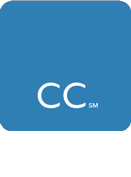 Certified in Cybersecurity
Certified in Cybersecurity 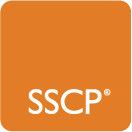 SSCP
SSCP 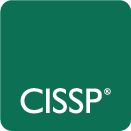 CISSP
CISSP 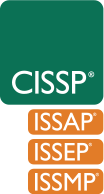 CISSP Concentrations
CISSP Concentrations 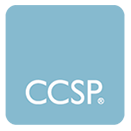 CCSP
CCSP 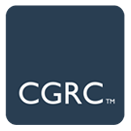 CGRC
CGRC 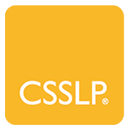 CSSLP
CSSLP 